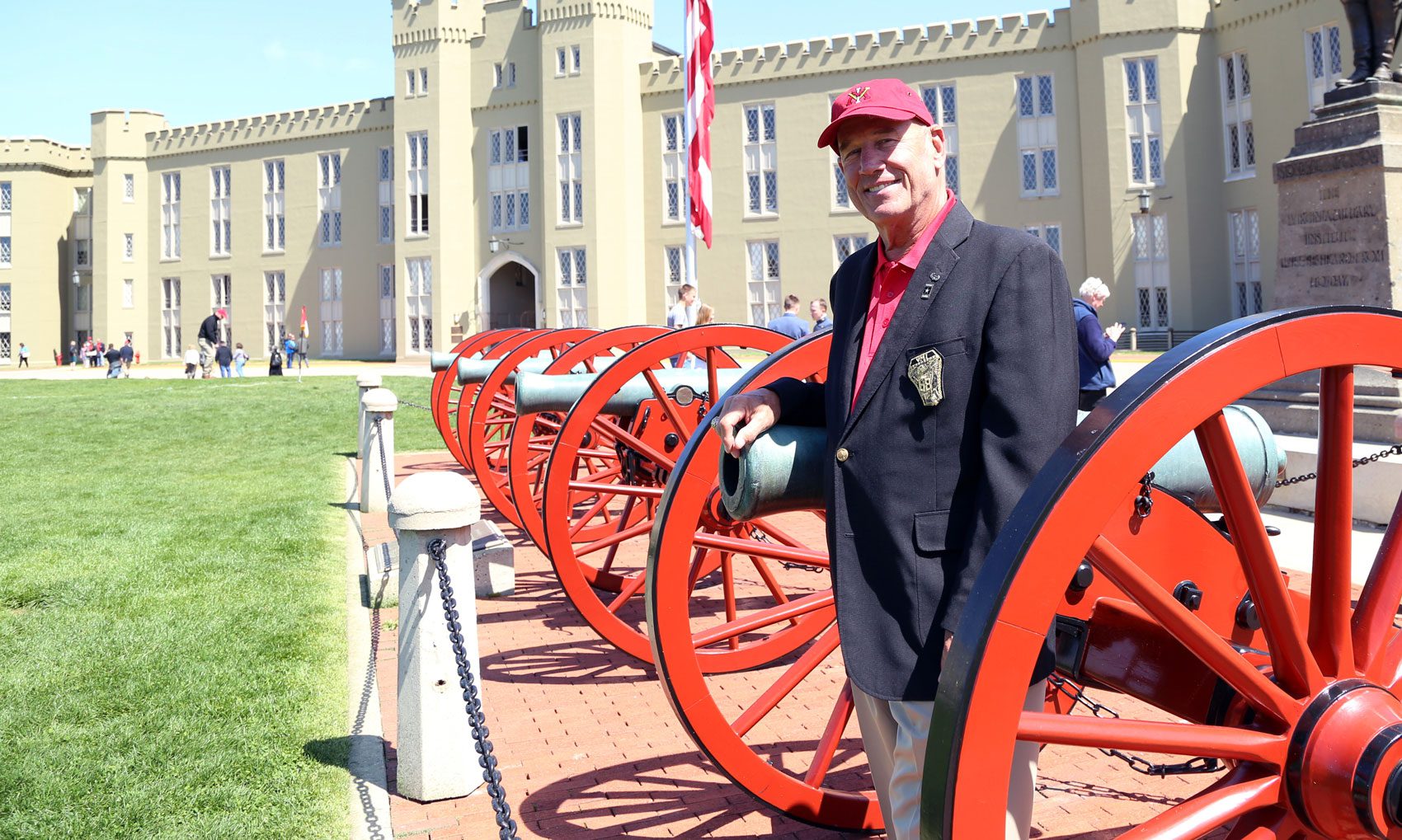Rankin ’68 Helps Wounded Warriors, Families

Dick Rankin ’68 founded Wounded Warrior Ohana to help wounded veterans and their families in Hawaii.

Dick Rankin ’68 founded Wounded Warrior Ohana to help wounded veterans and their families in Hawaii.
When retired U.S. Army Col. Dick Rankin ’68 decides to do something, there’s no holding back: He puts his entire heart into the effort. Three years ago, Hawaii-based Rankin began focusing his energy on helping wounded veterans through building community and relationships. To truly support his local wounded warrior population, Rankin realized it was essential to include not just the veterans, but the veterans’ families, in his efforts.
“We really needed to do something for these families,” Rankin said, recalling the organization’s beginnings. “I knew I could raise money, and I wanted to focus attention on the families of wounded warriors.”
In a brainstorming session with Don Inouye, who later became the organization’s vice president, the two friends came up with the perfect name for their new organization: Wounded Warrior Ohana.
“In Hawaiian, ‘ohana’ means family, and it is descriptive of what we do,” Rankin said. “We try to provide family-enriching experiences for the wounded warriors.”
Rankin began reaching out to veterans by connecting with local military bases, where WWO found wounded warriors who were still on active duty. Next, Rankin contacted the Veterans Affairs to connect with veterans who had been discharged. Exiting the military can leave veterans and their families feeling alienated or overwhelmed, and WWO provides valuable support, Rankin noted.
Rankin has also been able to reach some of his peers, fellow Vietnam-era veterans, who don’t always have family nearby. Connections made through WWO become a family support system. Older veterans need to get out and socialize as much as younger ones, Rankin observed. “The older veterans get a lot out of our events. Initially, they don’t talk very much, but they are able to mix with younger veterans, and by the end of the day, they’ll be exchanging stories.”
The 100 percent volunteer-run WWO hosts a wide variety of events throughout the year, including beach picnics, athletic games, whale-watching cruises, luaus, magic shows and water parks. A common theme throughout every event is a meal. Rankin purposefully includes a meal in each event to give the veterans and families time to relax, talk to each other and hopefully make new connections.
“It’s my hope that while they’re sitting around having lunch, they’re interacting,” Rankin said about encouraging warriors and families to socialize. “That part is really good for [wounded warriors]. We include a meal with every event we do so we have that kind of time. We’ll sit down and have lunch and talk. That’s how we try to get after the socialization piece.”
WWO diverges from many veterans organizations, which have focused solely on combat-wounded, post-9/11 veterans. Conversely, WWO opens its arms to all wounded warriors from any era – regardless of how the wounds were received – and their families.
“We take care of sick, injured – if they’re a part of the military and something has hit them in a bad way, we don’t care what era [they’re] from,” Rankin declared.
In the three years since WWO began, it has grown from a fledgling organization on a shoestring budget to serving upward of 1,000 area wounded warriors. Rankin “never dreamed” that WWO, which started with just his family and a few friends, would be helping so many people. He has the steady support of talented volunteers. Professional services, including legal, public relations, chaplain, accounting and fundraising, are all provided pro-bono.
“There are many more people who need help than you would think,” he said. “I used to worry when I held an event whether I’d be able to cover it with the money I had.”
In WWO’s early months, Rankin was only able offer a few tickets for his events. As word spread about what WWO was doing, Rankin gathered backing in in many areas. These days, when WWO hosts an event, Rankin can issue an open invitation. “I had to put a cap [on the invitations] the first couple of years,” Rankin said. “Now, I simply say, ‘If you want to come, come!’”
WWO partners with several area organizations, including AccesSurf, a nonprofit innovator in enabling people with disabilities to participate in adaptive water sports; Koa Beach Service, which provides water equipment and adaptive floating and sand wheelchairs; and Waikiki Beach Services, which provides everything from umbrellas to beach wheelchairs. The organization has also garnered sponsor support from nationally-known names, like Hilton and the Kiewit Corporation. WWO receives assistance from area attractions in the form of free or discounted goods, tickets and services, allowing wounded warriors and their families access to events otherwise financially difficult or even impossible to experience.
None of this may have happened if it weren’t for two things: Football and VMI. A football scholarship led Rankin to VMI, VMI led Rankin to the Army, and the Army led Rankin to both Hawaii and teaching.
“I may not have gone any place if it weren’t for football,” Rankin recalled. “I just loved football. That’s how I felt back in those days.” Rankin’s father had died, and his opportunities were limited. So, when VMI offered Rankin a “full-on” football scholarship, his mother advised him to take it.
The young Rankin arrived at VMI full of mischief but soon learned a different approach to life. He says that VMI changed him and taught him a better way to do things. He learned to “get it done, and do it right,” he remembered. “Everyone has to be a member of a team, and you have to cooperate. That’s how you get things done properly. I took that into the Army and became very successful. I owe that all to VMI. I love VMI for what it did for me.”
After graduation, Rankin spent more than two decades in the Army, including a combat tour in Vietnam, postings in Hawaii and a stint teaching at the U.S. Military Academy at West Point. When preparing for military retirement, he recalled how much he loved teaching at West Point, and turned down the banks and businesses courting him in favor of teaching high school economics at Honolulu’s ‘Iolani School. During his 20-year teaching career, Rankin won awards as a teacher and coached an economics team to state and national championships multiple times. Before his second retirement in 2014, he organized a student wounded warrior chapter – called Raiders for Wounded Warriors – at ‘Iolani School. The Raider chapter actively continues to support WWO.
To learn more about WWO, visit their website at www.wwohana.org, or contact Rankin at dickrankin@wwo.org.
